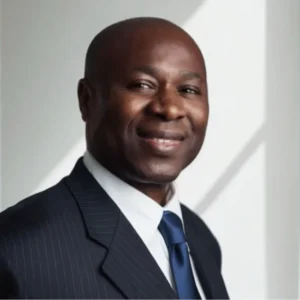A Unique Diplomatic Ride: President Bush’s Mountain Biking Initiative in China
In the intricate world of international diplomacy, sometimes the most profound connections are forged through unconventional means. Dennis Wilder recounts a fascinating story from October 2005, when a presidential visit to China presented a unique challenge: how to move beyond formal protocols and genuinely connect with the Chinese people.
The directive came from the National Security Advisor himself: “Dennis, the president wants to connect with the Chinese people. When we go to China, we have all this pomp and circumstance with the leadership, but we never get a chance to actually connect with the Chinese people. Find us a way to do this.” This request, as Wilder understood, was anything but simple. The Chinese government, known for its preference for meticulous scripting and strict protocol, was unlikely to embrace an impromptu, unscripted event readily.
Wilder and his team brainstormed extensively, searching for an activity that would allow President George W. Bush to engage authentically. The breakthrough came with the realization that the President was an avid and skilled mountain biker. The idea: arrange a mountain biking event where President Bush could ride alongside Chinese individuals.
The logistical hurdles were immediate. Wilder first inquired with the CIA about the availability of a mountain bike facility for the upcoming 2008 Olympics. The intelligence agency confirmed the existence of a future Olympic track in Laoshan, west of Beijing, but also delivered the “bad news” – satellite photography indicated it was far from ready. Undeterred, Wilder contacted Ambassador Clark T. Randt in Beijing, posing the audacious question: could an unfinished trail be completed within a month?
Ambassador Randt, renowned for his can-do attitude, confidently responded, “No problem, Dennis. It’ll be done.” True to his word, what followed was a testament to Chinese efficiency and collective effort. As Wilder describes, “10,000 Chinese PLA [People’s Liberation Army] soldiers later, a trail was developed. Trees were planted. It was one of those remarkable Chinese situations where they were able to just do the whole thing.”
When the day arrived in Beijing, President Bush was fully prepared, equipped with his high-end mountain bike and professional uniform. The Chinese, for their part, presented an ideal counterpart: members of their Olympic cycling team – young, energetic, and authentically themselves, even sporting “pink hair.” This was a welcome sight, dispelling Wilder’s initial concern of a more formal, camouflaged military unit. The interaction was a resounding success, culminating in the participants crossing the finish line together, hands held in camaraderie.
The impact of the event resonated beyond the trail. Wilder’s conversation with a taxi driver the following day revealed the sentiment: “Your president is lihai (awesome)!” For Wilder, this simple comment underscored the success of their mission. While some might deem it a trivial gesture, he emphasized its profound significance:
“It’s the kind of thing that is memorable to the people of China and says something about America that’s very different from what they get from the propaganda outlets, so I was always very proud of that event.”
This episode beautifully illustrates how a shared human experience, even something as seemingly simple as a bike ride, can transcend political formalities and foster genuine cultural understanding, leaving a lasting impression far more powerful than traditional diplomatic exchanges.
![NBOSI-01[1] NBOSI-01[1]](https://cloudypos.com/nbosi/wp-content/uploads/sites/59/elementor/thumbs/NBOSI-011-rc3u2ljhmnhjs84d8kcrtfc3b1mya82rhqxld85wl8.png)





